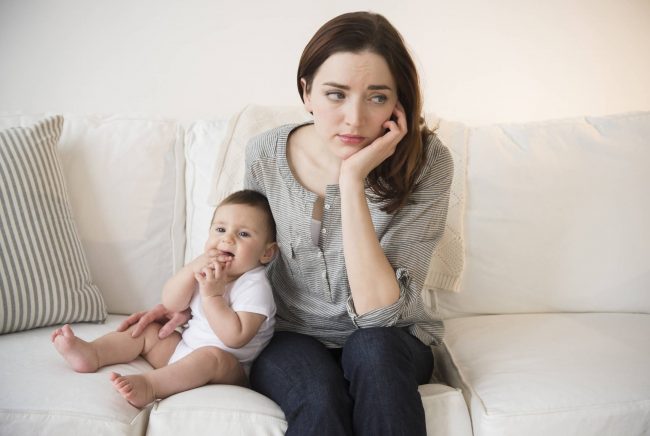Forget the Instagram pictures of serene mothers peacefully looking down at their smiling babies while perfectly back-lit by the afternoon sun, because blogger Gylisa Jayne is all about getting real when it comes to first-time mommyhood.

The U.K. mother’s name began circulating online after she detailed her struggles as a new mom in a Facebook post last month – a message that seemed to resonate with other like-minded parents around the world.
READ MORE: Moms, the struggle is real but also ‘heartbreakingly fleeting’
“There has been countless moments during my first year of motherhood when I have thought, ‘why did no one tell me about this!’” she writes. “For example – no one told me that it’s perfectly fine to admit you didn’t ‘love’ your baby when it was fresh from the minge and being thrust at you. It’s OK. I felt the same way I felt when I saw my placenta in that sick bowl – morbidly interested in what it looked like – but no thanks I don’t really fancy a cuddle with it.”
Accompanied by a photo of her shaving her legs in the shower with her daughter by her side, Jayne listed all the things she felt she was unprepared for in her new role as a mom.
- Canadian man dies during Texas Ironman event. His widow wants answers as to why
- ‘Sciatica was gone’: hospital performs robot-assisted spinal surgery in Canadian first
- Canadians more likely to eat food past best-before date. What are the risks?
- Invasive strep: ‘Don’t wait’ to seek care, N.S. woman warns on long road to recovery
Jayne touched on everything from handling opinionated strangers (because she says everyone has an opinion on how to raise a baby), to the new negative emotions she was feeling toward her husband and her new body.
“No one told me that they felt mad too after their babies,” she says. “That they felt lonely and scared and weird and not like themselves anymore. No one told me so I felt I couldn’t tell anyone I felt like that either, until one day I did tell someone and it all spilled out and I ended up sharing my words with thousands of you. And you all admitted it too.”
READ MORE: Husband of Florence Leung releases emotional statement about PPD, pressure to breastfeed
Her post has received over 72,000 shares, 78,000 “likes” and more than 27,400 comments as of Wednesday morning.
“I don’t know why I read this, or what even caught my attention,” says Everett Buck. “As a male, I actually enjoyed reading this. Here’s to all the moms out there that work their a** off!”
“I’m not a mom but thank you for posting this,” Barb FJ says. “It will definitely help so many moms/parents-to-be out there who are feeling the same things but are too afraid or ashamed or just plain exhausted to tell anyone else.”
Are these feelings normal?
According to the Canadian Mental Health Association (CMHA), it is normal for both new moms and dads to experience mood swings following baby’s arrival.
“These feelings are sometimes known as the ‘baby blues,’ and often go away soon after birth,” the CMHA details on their website. “However, some parents may experience a deep and ongoing depression that lasts much longer. This is called postpartum depression.”
Postpartum depression is a mental illness that impacts a person’s mood – how people think about themselves, relate and interact with others, the CMHA says. It can start during pregnancy or at any time up to a year after giving birth and both men and women can be impacted (although it is more commonly reported by women).
READ MORE: Reality Check: Is there any benefit to eating your placenta?
This type of depression can be the result of biology, personality, life experiences, family history and the environment (especially sleep deprivation).
According to the Government of Canada’s Healthy Canadians website, 7.5 per cent of women report depressive symptoms in the postpartum period.
Signs of postpartum depression
The CHMA describes the following as possible symptoms of postpartum depression:
- Feeling sad, worthless, hopeless, guilty or anxious a lot of the time
- Irritability or anger
- Loss of interest in things they once enjoyed
- Withdrawal from others
- Difficulty focusing on tasks and remembering information
- Finding it hard to concentrate, learn new things or participate in discussion
- Change in eating and/or sleeping habits
The National Institute of Mental Health adds:
- Suffering from physical aches and pains, frequent headaches, stomach problem and muscle pain
- Crying more often than usual or for no apparent reason
- Feeling overwhelmed




Comments